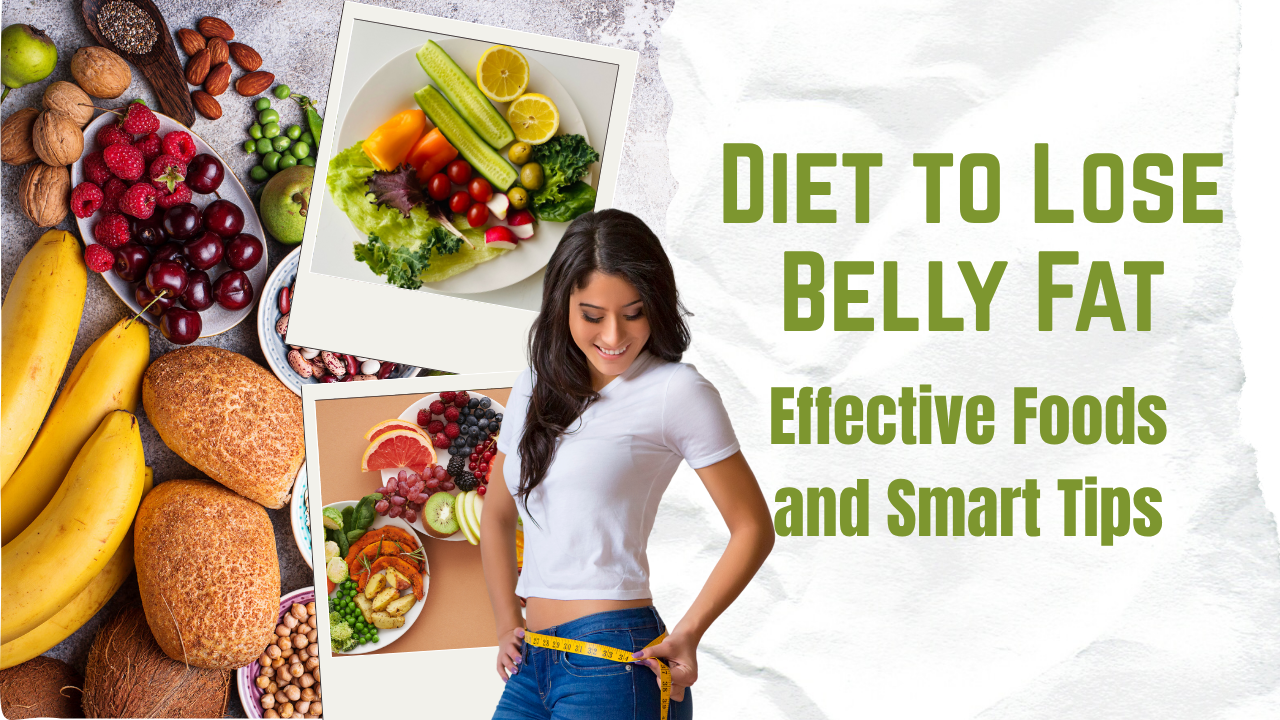Belly fat, also known as visceral fat, is stored deep within the abdominal cavity and surrounds vital organs. This type of fat is particularly harmful as it increases the risk of heart disease, type 2 diabetes, and liver problems. Reducing belly fat not only improves your appearance but also enhances overall health and longevity. To achieve this, following a proper diet to lose belly fat and maintaining an active lifestyle are essential.
A balanced diet rich in whole, unprocessed foods plays a crucial role in reducing visceral fat. Focus on consuming lean proteins like fish, chicken, and legumes, which help build muscle and boost metabolism. Incorporate plenty of vegetables, fruits, whole grains, and healthy fats such as avocados, nuts, and olive oil. Limiting added sugars, refined carbs, and processed foods is equally important, as these can lead to fat accumulation around the abdomen.
In addition to following a healthy diet to lose belly fat, regular physical activity is vital. Combining cardio exercises such as running or cycling with strength training can accelerate fat burning. Staying hydrated, getting adequate sleep, and managing stress also support your body’s natural fat-burning processes, helping you achieve a flatter, healthier midsection over time.
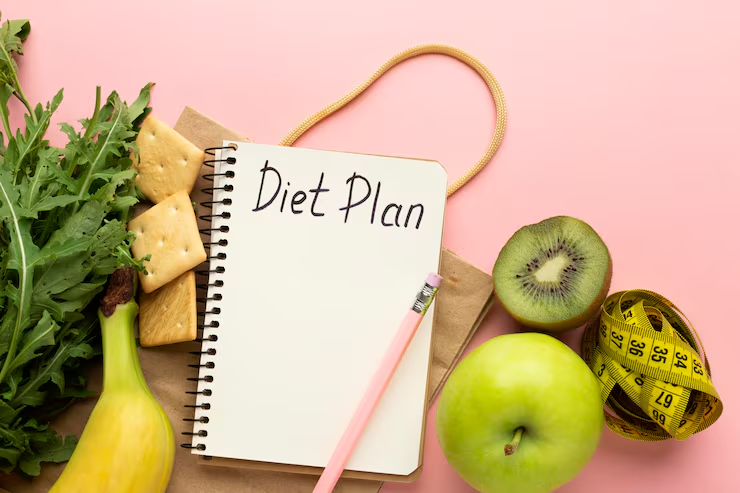
Top Tips for a Diet to Lose Belly Fat
Prioritize Protein-Rich Foods
When it comes to an effective diet to lose belly fat, protein plays one of the most crucial roles. Protein is essential for building and maintaining muscle, boosting metabolism, and keeping hunger at bay. Unlike carbohydrates or fats, protein has a high thermic effect, meaning your body burns more calories digesting it. This makes protein an excellent nutrient for anyone trying to burn fat, especially around the belly area.
Including sufficient protein in your daily meals helps regulate appetite and reduces cravings, making it easier to avoid overeating. Protein keeps you feeling full for longer periods, helping you maintain a calorie deficit without feeling deprived. It also prevents muscle loss during weight reduction, ensuring that the weight you lose comes primarily from fat stores rather than muscle tissue.
To follow an effective diet to lose belly fat, include high-protein foods such as chicken, turkey, eggs, fish, legumes, tofu, tempeh, and Greek yogurt. These foods are not only nutrient-dense but also versatile, making it easy to include them in every meal. By making protein the foundation of your diet, you can support steady fat burning, maintain lean muscle, and achieve a toned midsection.
One of the most important macronutrients to focus on when trying to lose belly fat is protein. Protein is essential for muscle repair, boosting metabolism, and promoting feelings of fullness.
Why Protein Helps with Belly Fat Loss:
Boosts Metabolism: High-protein diets can increase the thermic effect of food (TEF), which is the energy required to digest food. This leads to a higher calorie burn.
Reduces Appetite: Protein-rich foods increase satiety and reduce hunger, which helps in preventing overeating and late-night snacking.
Supports Muscle Mass: Consuming adequate protein helps preserve muscle mass during weight loss, ensuring that fat is lost rather than muscle.
Protein-Rich Foods to Include:
Lean meats like chicken, turkey, and lean beef
Fish such as salmon, tuna, and mackerel (which also provide healthy fats)
Eggs and egg whites
Legumes and beans
Tofu and tempeh for plant-based options
Greek yogurt and cottage cheese
Incorporate Healthy Fats into Your Diet
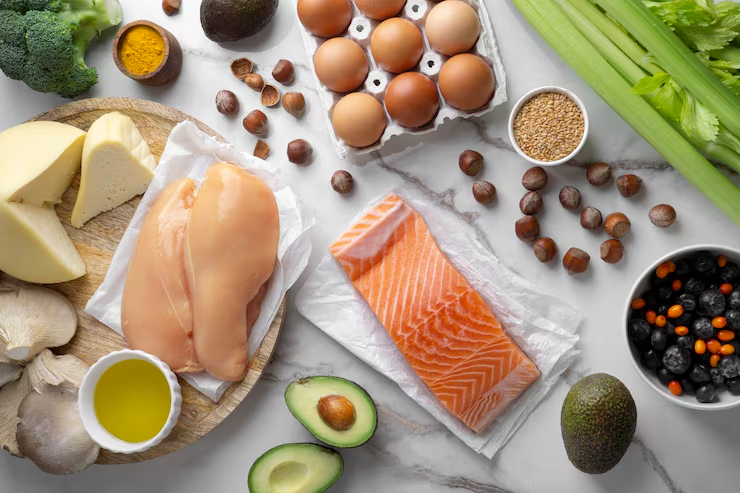
Healthy fats are often misunderstood but are actually vital for a successful diet to lose belly fat. While many associate fats with weight gain, the truth is that certain types of fats can improve metabolism, regulate hormones, and reduce inflammation—all of which contribute to fat loss. The key is to choose the right kinds of fats and consume them in moderation.
Foods rich in monounsaturated and polyunsaturated fats, such as avocados, nuts, seeds, olive oil, and fatty fish like salmon, are highly beneficial. These fats help your body absorb fat-soluble vitamins (A, D, E, and K) and promote heart health. Omega-3 fatty acids, found in fish and flaxseeds, also play a major role in reducing abdominal fat and improving overall body composition.
In your diet to lose belly fat, replace unhealthy fats like trans fats and excess saturated fats with these healthier options. Cooking with olive oil instead of butter, snacking on almonds instead of chips, and adding avocado to your meals can make a huge difference. Healthy fats help you feel satisfied, balance your hormones, and encourage your body to burn fat more efficiently over time.
Contrary to popular belief, fats are an essential part of a healthy diet and can even aid in belly fat reduction. However, it’s crucial to focus on healthy fats rather than trans fats or excessive amounts of unhealthy saturated fats.
Healthy Fats to Eat for Belly Fat Loss:
Avocados: Rich in monounsaturated fats and fiber, avocados promote fat loss and help with satiety.
Nuts and seeds: Almonds, walnuts, chia seeds, and flaxseeds are rich in healthy fats and protein. They also contain fiber to aid digestion.
Olive oil: A great source of monounsaturated fats, which are linked to reduced belly fat.
Fatty fish: Salmon, sardines, and mackerel provide omega-3 fatty acids, which help reduce fat in the abdominal region.
Healthy fats not only help reduce inflammation but also contribute to better hormone regulation, which is essential for belly fat loss.
Choose Whole Grains Over Refined Carbs
Carbohydrates are an important energy source, but the type of carbs you consume can significantly affect your diet to lose belly fat. Refined carbohydrates—such as white bread, pastries, and sugary snacks—are stripped of fiber and nutrients. They cause blood sugar spikes that increase insulin levels and promote fat storage, particularly in the abdominal area.
Whole grains, on the other hand, are rich in fiber, vitamins, and minerals. They digest slowly, providing sustained energy while keeping you full longer. This helps prevent overeating and stabilizes blood sugar levels throughout the day. Fiber also plays a crucial role in digestion and helps your body eliminate waste efficiently.
For a balanced diet to lose belly fat, choose complex carbohydrates like brown rice, quinoa, oats, barley, and whole wheat products. These foods support long-term weight loss and promote digestive health. By replacing refined carbs with whole grains, you can control your calorie intake, regulate blood sugar levels, and reduce belly fat naturally and sustainably.
Refined carbohydrates, such as white bread, pasta, and sugary snacks, are often the culprits behind belly fat accumulation. These foods spike your blood sugar, increase insulin levels, and contribute to fat storage.
Why Whole Grains Are Better:
Whole grains are rich in fiber and take longer to digest, which keeps you feeling full for longer periods. They also help maintain stable blood sugar levels and reduce insulin spikes. Fiber also plays a crucial role in regulating digestion and promoting fat loss.
Best Whole Grains for Belly Fat Loss:
Quinoa
Brown rice
Oats (preferably steel-cut or old-fashioned)
Whole wheat bread and pasta
Barley and farro
By switching to whole grains, you’ll increase your fiber intake and reduce the likelihood of excess belly fat accumulation.
Eat More Fiber-Rich Foods
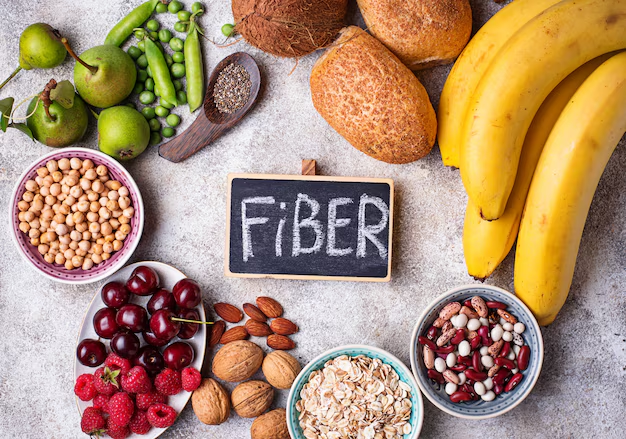
Fiber is an essential nutrient that supports digestive health and plays a powerful role in any diet to lose belly fat. Soluble fiber, in particular, helps slow down digestion and reduces appetite, leading to fewer calorie intakes throughout the day. It also stabilizes blood sugar levels, preventing the spikes and crashes that often lead to fat accumulation.
Foods rich in fiber include vegetables, fruits, whole grains, beans, lentils, and seeds. Soluble fiber forms a gel-like substance in your stomach that helps you feel full longer, while insoluble fiber adds bulk to your stool and aids in regular bowel movements. This combination supports better digestion and helps flush out toxins that may hinder fat loss.
Adding more fiber to your diet to lose belly fat can significantly improve your metabolism and overall gut health. Include foods like oats, berries, broccoli, chia seeds, and legumes in your meals. Over time, this will not only reduce belly fat but also enhance your energy levels, support your immune system, and promote a flatter, healthier stomach.
Dietary fiber plays a significant role in reducing belly fat. Fiber helps with digestion, keeps you feeling full longer, and regulates blood sugar, all of which support fat loss.
Types of Fiber to Focus On:
Soluble fiber: This type of fiber dissolves in water and forms a gel-like substance in your stomach, which helps slow digestion and curb appetite. It is found in oats, beans, lentils, apples, and citrus fruits.
Insoluble fiber: This fiber adds bulk to your stool and aids in digestion, preventing constipation. You can find it in foods like whole grains, vegetables, and nuts.
High-Fiber Foods to Add:
Leafy greens (spinach, kale)
Berries (strawberries, blueberries)
Beans and legumes (chickpeas, lentils)
Whole grains (brown rice, quinoa)
Cruciferous vegetables (broccoli, cauliflower)
Aim to incorporate a variety of fiber-rich foods into your daily meals to help regulate digestion and promote fat loss.
Avoid Sugary Drinks and Excessive Alcohol
One of the biggest culprits behind stubborn belly fat is high-calorie beverages. For an effective diet to lose belly fat, cutting out sugary drinks and limiting alcohol is essential. These drinks are loaded with empty calories that spike blood sugar and insulin levels, leading to fat accumulation around the waistline.
Sugary beverages like sodas, flavored coffees, and energy drinks contain high amounts of added sugars that provide no nutritional benefit. Likewise, excessive alcohol consumption contributes to fat storage and slows down your metabolism. Alcohol also increases appetite and lowers inhibitions, making it easier to overeat or choose unhealthy foods.
To succeed in your diet to lose belly fat, replace these drinks with healthier alternatives like water, green tea, or herbal teas. Green tea, for example, contains catechins that boost metabolism and enhance fat oxidation. Staying hydrated not only supports fat loss but also improves digestion, skin health, and overall vitality.
Sugary drinks, such as sodas, energy drinks, and sweetened juices, are packed with empty calories that contribute to weight gain, especially around the belly area. These drinks spike insulin levels and promote fat storage.
How Alcohol Affects Belly Fat:
Excessive alcohol consumption can increase belly fat by contributing to fat storage and lowering your metabolism. Alcohol is calorie-dense and offers little to no nutritional value. Additionally, alcohol can increase cravings for unhealthy, high-calorie foods, which further promotes fat gain.
What to Drink Instead:
Water: It’s essential for metabolism and helps you feel full.
Green tea: Rich in antioxidants and may increase fat-burning due to its catechin content.
Herbal teas: Such as peppermint, chamomile, and ginger tea.
Infused water with lemon, cucumber, or mint can also be refreshing and hydrating without adding extra calories.
Reducing your intake of sugary drinks and alcohol is a vital step in losing belly fat and improving your overall health.
Control Your Portion Sizes
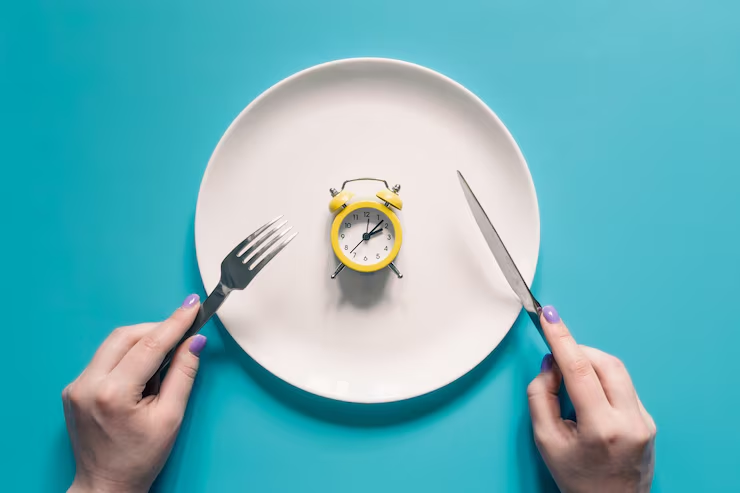
Even when eating healthy foods, consuming them in large quantities can slow your progress. Practicing portion control is a fundamental part of any diet to lose belly fat. By controlling portion sizes, you can prevent overeating, stay within your calorie goals, and create a consistent calorie deficit necessary for fat loss.
One effective strategy is to use smaller plates and bowls, which naturally reduce your portions without making you feel deprived. Eating slowly and mindfully also helps you recognize when you’re full, preventing unnecessary snacking. Tracking your meals through a food journal or app can give you insight into your eating patterns and help you stay accountable.
In your diet to lose belly fat, focus on balanced meals that include lean proteins, whole grains, vegetables, and healthy fats in moderation. Pre-portion snacks like nuts or fruit to avoid mindless eating. Over time, portion control will become a habit that supports steady fat loss and long-term weight maintenance.
Even the healthiest foods can contribute to weight gain if eaten in excessive amounts. Portion control is a key strategy for managing calorie intake and reducing belly fat.
Why Portion Control Works:
Prevents overeating: By regulating portion sizes, you can avoid consuming more calories than your body needs.
Helps with calorie deficit: Losing belly fat requires you to be in a calorie deficit, meaning you need to burn more calories than you consume. Portion control helps you achieve this without feeling deprived.
Tips for Controlling Portions:
Use smaller plates and bowls to avoid overeating.
Pay attention to hunger and fullness cues, and eat mindfully.
Track your calorie intake using apps like MyFitnessPal to ensure you stay within your target.
Pre-portion snacks into smaller servings to avoid mindless snacking.
Portion control helps create a calorie deficit without drastically cutting out essential nutrients.
Stay Hydrated
Water plays a critical role in metabolism, digestion, and overall health, making it an essential part of a diet to lose belly fat. When you are properly hydrated, your body functions optimally, burning calories more efficiently. In many cases, people mistake thirst for hunger, leading to unnecessary calorie consumption.
Drinking water before meals can help you feel full, reducing the likelihood of overeating. It also aids in the removal of toxins and waste, supporting better digestion and fat metabolism. Proper hydration ensures that your organs, including your liver, function efficiently, allowing your body to process nutrients and burn fat effectively.
As part of your diet to lose belly fat, aim to drink at least eight cups (about two liters) of water daily. You can also include herbal teas and water-rich foods like cucumbers and oranges. Avoid sugary beverages that counteract your progress. Staying hydrated enhances your body’s natural fat-burning ability and helps you feel energized throughout the day.
Hydration is essential for overall health, and it also plays a role in fat loss. Drinking water before meals can help reduce appetite and prevent overeating. It also helps your body metabolize fat more efficiently.
Why Hydration Helps in Belly Fat Loss:
Boosts metabolism: Drinking water increases your body’s metabolic rate, helping you burn more calories.
Reduces appetite: Sometimes, the body mistakes thirst for hunger, leading to unnecessary snacking. Staying hydrated can help you avoid this.
Flushes out toxins: Water helps remove toxins from the body, ensuring better digestion and fat metabolism.
Tips to Stay Hydrated:
Aim for at least 8 cups (2 liters) of water per day, or more if you’re physically active.
Drink a glass of water before each meal to curb appetite.
Carry a water bottle with you throughout the day to remind yourself to drink.
By staying hydrated, you support your body’s fat-burning processes and overall health.
Plan and Prep Your Meals
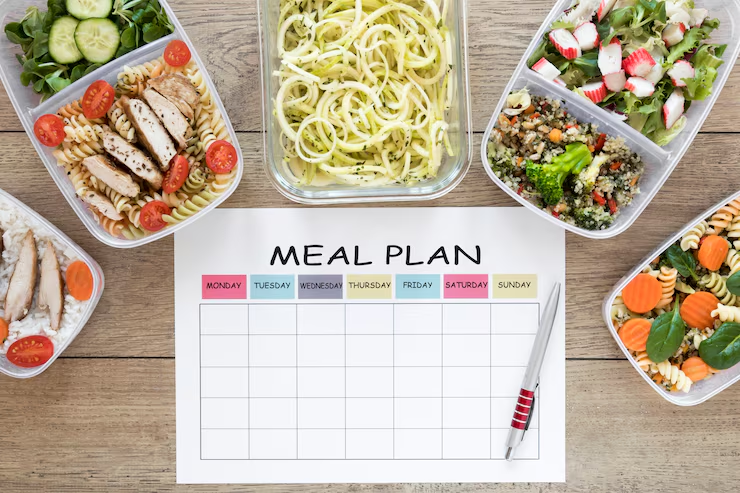
Meal planning and preparation are game changers for anyone serious about following a diet to lose belly fat. When you plan your meals ahead of time, you eliminate last-minute decisions that often lead to unhealthy choices. This approach helps you stay disciplined and ensures your diet to lose belly fat remains consistent and effective for long-term results.
Preparing your meals allows you to control ingredients, portion sizes, and cooking methods, which are crucial for a diet to lose belly fat. By including the right balance of protein, fiber, healthy fats, and complex carbs, you can optimize your metabolism and prevent unnecessary fat storage. It also helps you avoid impulsive eating or reaching for fast food when time is limited.
To maintain your diet to lose belly fat, dedicate one or two days a week to meal prep. Cook in batches and store pre-portioned meals in containers for easy access. Add healthy snacks like nuts, fruit, or yogurt to keep hunger in check. Consistent meal planning not only supports your diet to lose belly fat but also builds sustainable habits for better health and long-term weight management. proper planning, you’ll stay organized, save money, and stay fully committed to your belly fat loss journey.
Meal planning and preparation are essential for sticking to a healthy diet and avoiding temptation. When you have healthy meals ready to go, it’s easier to stay on track with your weight loss goals.
Benefits of Meal Planning:
Prevents unhealthy food choices: When meals are prepped, you’re less likely to turn to fast food or unhealthy snacks.
Saves time and stress: Having meals ready to go reduces the stress of figuring out what to eat during the week.
Supports portion control: Meal prep helps you control portion sizes and ensure balanced meals.
Tips for Meal Prep:
Choose one or two days a week to prepare your meals in advance.
Prepare foods that are easy to store and reheat, such as grilled chicken, roasted vegetables, and quinoa.
Make snacks ahead of time, like portioned servings of nuts, fruits, or yogurt.
Meal prep is a game-changer for anyone serious about losing belly fat and maintaining a healthy lifestyle.
Conclusion

Achieving a flat stomach and improving your overall health requires more than just temporary dieting—it demands a sustainable lifestyle centered around healthy choices. A well-balanced diet to lose belly fat focuses on eating whole, nutrient-rich foods that nourish your body while promoting fat loss. Incorporating lean proteins, whole grains, healthy fats, and fiber-rich foods not only helps burn excess belly fat but also supports your metabolism, digestion, and energy levels.
Alongside proper nutrition, mindful eating and portion control play vital roles in maintaining a calorie deficit—the key to losing fat effectively. Staying hydrated, avoiding sugary drinks, and limiting alcohol are equally important steps in a successful diet to lose belly fat. Small, consistent changes such as preparing your meals in advance, eating slowly, and focusing on nutrient-dense foods can make a lasting difference in your health and appearance.
In the long run, the goal of a diet to lose belly fat isn’t just about achieving a slimmer waistline; it’s about improving your overall well-being. Reducing visceral fat lowers your risk of chronic diseases such as diabetes and heart disease while boosting your confidence and energy. By combining balanced nutrition with regular exercise, quality sleep, and stress management, you can build a strong foundation for a healthier, leaner, and more vibrant life.
FAQs
Q1. What is the best diet to lose belly fat?
The best diet to lose belly fat is one that focuses on whole, unprocessed foods while maintaining a calorie deficit. Include lean proteins, fiber-rich vegetables, healthy fats, and complex carbohydrates such as oats and quinoa. Avoid refined sugars, processed foods, and trans fats, as they contribute to fat storage around the abdomen. Consistency and balance are more effective than extreme dieting or skipping meals.
Q2. How long does it take to lose belly fat with diet?
Results from a diet to lose belly fat vary depending on individual metabolism, age, activity level, and adherence. Generally, visible changes can occur within 4–8 weeks of consistent healthy eating and exercise. Remember, sustainable fat loss takes time. Gradual weight loss of 0.5–1 kg (1–2 lbs) per week is both realistic and healthy.
Q3. Can I lose belly fat without exercise?
While a proper diet to lose belly fat plays a major role, combining it with physical activity accelerates results. Diet alone can help you lose weight, but exercise—especially strength training and cardio—helps tone muscles, improve metabolism, and prevent fat regain.
Q4. Are there specific foods that burn belly fat?
Certain foods can enhance your diet to lose belly fat by boosting metabolism and reducing appetite. These include lean protein (chicken, eggs), high-fiber foods (oats, beans), healthy fats (avocado, nuts), and metabolism-boosting drinks like green tea. No single food melts fat instantly, but the right combination supports steady fat loss.
Q5. Is it okay to skip meals to lose belly fat faster?
Skipping meals is not recommended in a diet to lose belly fat. It can slow metabolism, increase hunger, and lead to overeating later. Instead, focus on balanced, portion-controlled meals spaced evenly throughout the day. Eating regularly helps maintain stable energy levels and supports long-term fat loss without deprivation.

